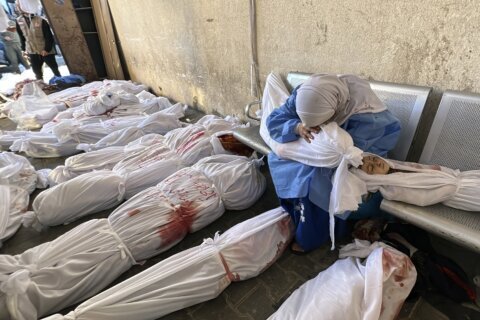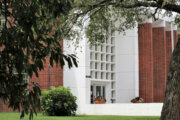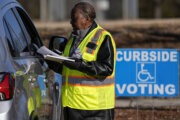Lessons from the last academic year will help guide the fall semester.
COVID-19, the disease caused by the novel coronavirus, hit college campuses in spring 2020, forcing schools into intervention mode. The pandemic prompted many colleges to send students home and shift classes online. More than a year into the pandemic and with the fall 2021 semester approaching, colleges have more experience managing coronavirus concerns and greater clarity on how to balance student expectations and COVID-19 precautions. The advent of COVID-19 vaccines has prompted the rollback of more restrictive policies, offering students and colleges alike the hope for a return to pre-pandemic times. While school responses vary, here’s what students can expect from the college experience in the forthcoming semester.
College officials anticipate a return to normalcy.
After a year where many students were stuck in front of computer screens or attending classes with limited capacity and social distancing measures in place, this fall should reflect a traditional college experience. “We are light years ahead of where we were last fall,” says Preeti Malani, professor and chief health officer at the University of Michigan–Ann Arbor. “We’re in a much better position to have a successful fall in terms of health and safety.” While there likely will still be cases of COVID-19 on college campuses, Malani expects that those “will be a nuisance” that “shouldn’t shut down business as usual.”
Vaccines will be mandatory at some colleges.
Some colleges are requiring students to get vaccinated before arriving on campus. Around 600 colleges currently have such requirements in place, according to the Chronicle of Higher Education. While the vaccine mandate has been met with resistance from some students, a federal judge recently denied a legal motion that would have temporarily halted a vaccine requirement at Indiana University–Bloomington until a lawsuit brought by a group of students against the school is resolved. With the mandate upheld, students and employees at campuses in the IU system are required to be fully vaccinated against COVID-19 unless they have an approved medical, religious or ethical exemption or are studying fully online. Additionally, Boston College, a Catholic university, has pushed back on student resistance to the vaccine requirement, noting that Pope Francis has urged everyone to get inoculated on moral grounds. Such policies vary by state, however, as some have banned colleges from requiring students to disclose their vaccination status.
Colleges will incentivize students to get vaccinated.
While many colleges are mandating vaccines, others are simply encouraging students to get the jab. Incentives, which vary greatly by college, include free tuition or housing, meal plans, gaming consoles, computers, gift cards, campus apparel and other goodies. Given the cost of frequent COVID-19 testing and other efforts, experts note that offering such incentives for vaccination is cheaper than past measures implemented to contain the virus. One school, Rhodes College in Tennessee, is requiring unvaccinated students to pick up the tab for testing, which will cost them $1,500 a semester. Elizabeth Meade, president of Cedar Crest College in Pennsylvania, which is not requiring the vaccine, says many students from minority communities are distrustful of the historically discriminatory U.S. health care system, which is why her school opted to simply encourage students to get the vaccine rather than enforce a mandate.
Unvaccinated students will likely have to undergo more testing.
The convenience of not getting tested is another incentive for students to get vaccinated. Experts say those who haven’t been vaccinated will likely be required to undergo testing more regularly than their vaccinated peers. Unvaccinated students are also at a greater risk, experts say. “People who are not vaccinated are at risk, and they’re about the only people that are at risk,” Malani says. For those hesitant to get the vaccine due to limited cases of serious adverse effects such as heart issues or blood clots — and even rare deaths — she notes that “there’s not zero risk with the vaccines, but the risk is negligible.” Ultimately, she says the dangers of COVID-19 far outweigh the potential risks associated with the vaccines.
International students may need to be vaccinated upon arrival.
While the Moderna, Pfizer and Johnson & Johnson vaccines are well known in the U.S., numerous other vaccines are being deployed in other countries. But one challenge for colleges is that not all vaccines are created equal in the eyes of the medical community and government agencies, which means international students may need to be vaccinated upon arrival in the U.S. even if they were inoculated in their home country. Malani notes that colleges are using the World Health Organization’s list of acceptable COVID-19 vaccines to determine who may need fresh shots.
Masks and social distancing may not be required.
Widespread vaccinations have led to a reopening of the U.S. economy with restaurants, bars, movie theaters and other venues easing restrictions that were in place in many states. The same will likely be true this fall for college campuses where masks and social distancing may not be part of COVID-19 protocols. Such decisions are likely to be driven by vaccination rates on campus. “We will be able to make an informed decision about masking when we have good data on the vaccination level on our campus and in our local community,” says Meade, noting that Cedar Crest College is still working to finalize such policies. However, amid COVID-19 surges in some parts of the country, colleges have indicated that they will closely monitor the changing nature of the virus and adjust plans accordingly.
COVID-19 precautions will be written into student codes of conduct.
Colleges wrote COVID-19 precautions into codes of conduct in 2020, and students should expect the same for this academic year. Students who broke those rules last year faced suspension or other disciplinary action. “Violations of our COVID-19 protocols were handled according to the student code of conduct policies. We will do the same thing again this year, but we need to finalize those policies,” Meade says. As colleges release those codes of conduct heading into the fall semester, students should be aware of potential violations and the disciplinary action attached to prohibited behavior, which is likely to vary by college and the level of the offense. Additionally, college policies will be informed by state laws and local mandates.
Financial aid negotiations may be more flexible.
The pandemic disrupted multiple industries in the U.S. and abroad, prompting job losses that left many families reeling. A silver lining is that students may be able to get more financial aid due to their shifting economic circumstances as the financial fallout from COVID-19 continues more than a year into the pandemic. “Students and their families are absolutely still seeing the economic impacts of COVID-19,” Meade says. “We are seeing students that come by and talk about their financial need, appeal their (financial aid) package, or come looking for extra resources. We have put extraordinary effort into trying to respond to those circumstances.”
Dining halls and dorms will have increased capacity.
Living on campus came with restrictions at many colleges last year, with some offering only single-occupancy dorm rooms and others barring students from visiting other residence halls. Many colleges did away with buffet dining and shifted to grab-and-go options. Others required reservations for limited indoor dining. But now college officials expect both dining and residence halls to return to capacity this fall. To help prevent COVID-19 issues, colleges may require vaccines for students living in residence halls, with some limited exemptions. At the University of Michigan — where a vaccine mandate is in place for those who choose to live on campus — Malani expects around 95% of students living in residence halls to be inoculated against the coronavirus.
Colleges will follow the traditional academic calendar.
Many colleges adjusted their traditional academic calendar last fall so students could end the semester and go home before Thanksgiving due to concerns about holiday travel and bringing COVID-19 back to campus. Similar travel concerns prompted some colleges to cancel spring break and sprinkle in a few days off throughout the semester. But this year, the academic calendar is one of the components of college life that is expected to return to normal across higher education. Students should expect to follow a traditional academic calendar, complete with the typical breaks, assuming the semester is not disrupted by spiking COVID-19 cases.
College sports will return to business as usual.
The pandemic disrupted many college athletic activities last school year, particularly the highly popular and profitable NCAA men’s basketball tournament. College football, another major revenue machine for schools in top athletic conferences, also faced disruptions. Schedules were largely limited to in-conference opponents and, in some instances, shortened. Some conferences canceled fall sports entirely. Though vaccines are now in play and schedules have seemingly returned to normal, there is still uncertainty, says Richard M. Southall, director of the College Sport Research Institute at the University of South Carolina. “I think that everybody’s just trying to figure it out as they go along, which is sort of what they did last year.”
College athletic events will likely be at capacity.
Alabama, a state with one of the lowest COVID-19 vaccination rates, is also home to the returning NCAA football champions and a diehard fan base that packs 100,000-plus spectators into Bryant-Denny Stadium on Saturdays to see the University of Alabama Crimson Tide. With no restrictions planned for stadium capacity, Southall says COVID-19 concerns may be a major issue for unvaccinated fans rather than student-athletes, many of whom have been vaccinated. “What I’m most interested to see is if we can avoid major issues in going back to full capacity in stadiums,” Southall says. Compounding this potential issue is the fact that many other states with top football programs — such as Texas, Oklahoma and South Carolina — also have some of the lowest vaccination rates.
Expectations for the fall 2021 semester
— College officials anticipate a return to normalcy.
— Vaccines will be mandatory at some colleges.
— Colleges will incentivize students to get vaccinated.
— Unvaccinated students will likely have to undergo more testing.
— International students may need to be vaccinated upon arrival.
— Masks and social distancing may not be required.
— COVID-19 precautions will be written into student codes of conduct.
— Financial aid negotiations may be more flexible.
— Dining halls and dorms will have increased capacity.
— Colleges will follow the traditional academic calendar.
— College sports will return to business as usual.
— College athletic events will likely be at capacity.
More from U.S. News
9 Things to Do the Summer Before College
Can New International Students Take Online Classes?
Don’t Make These 10 Freshman Mistakes in College
What the Coronavirus Means for the College Experience This Fall originally appeared on usnews.com







